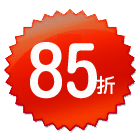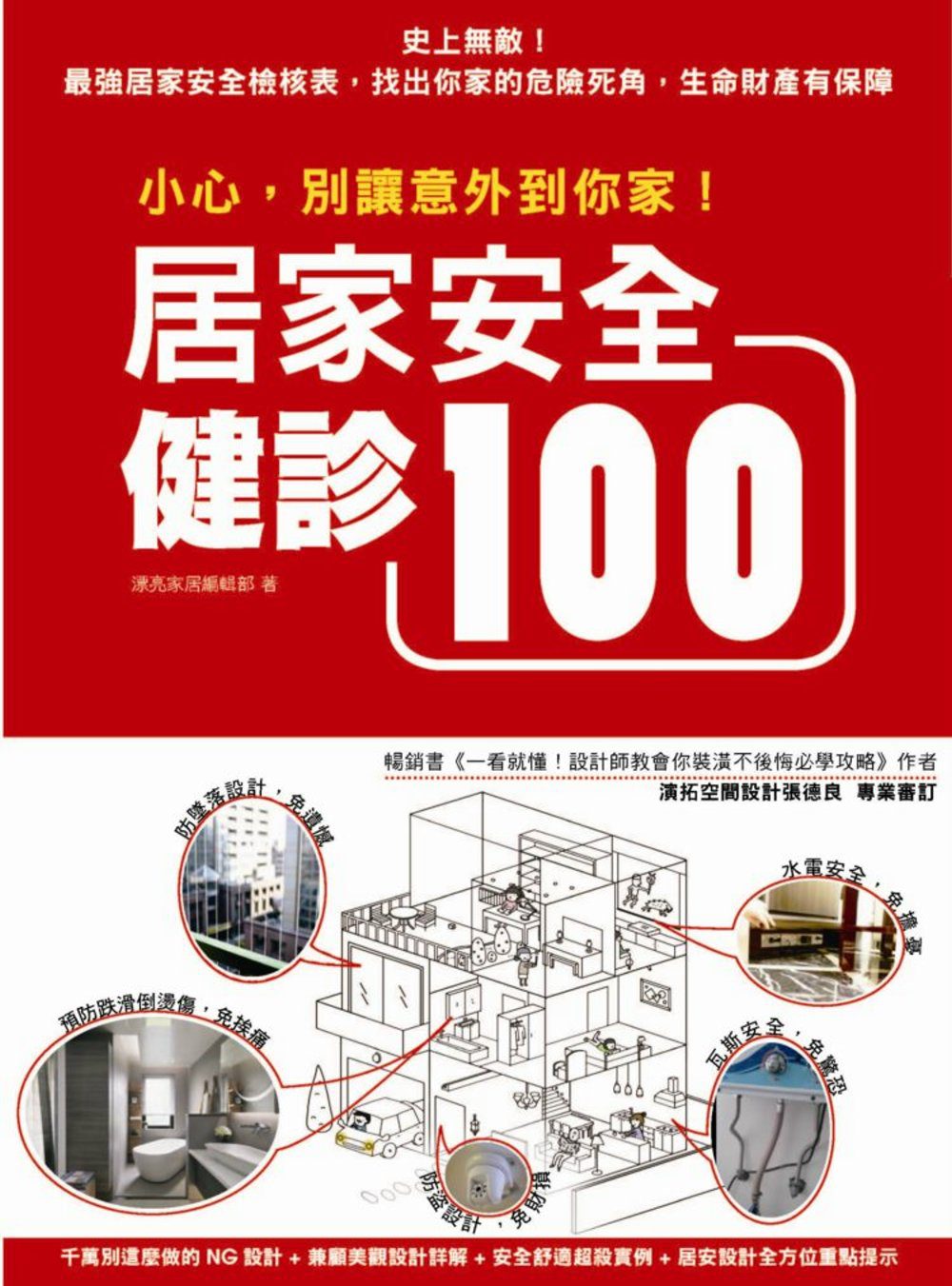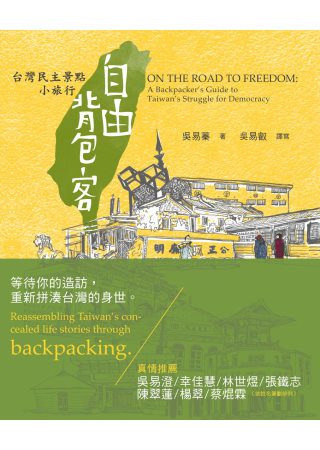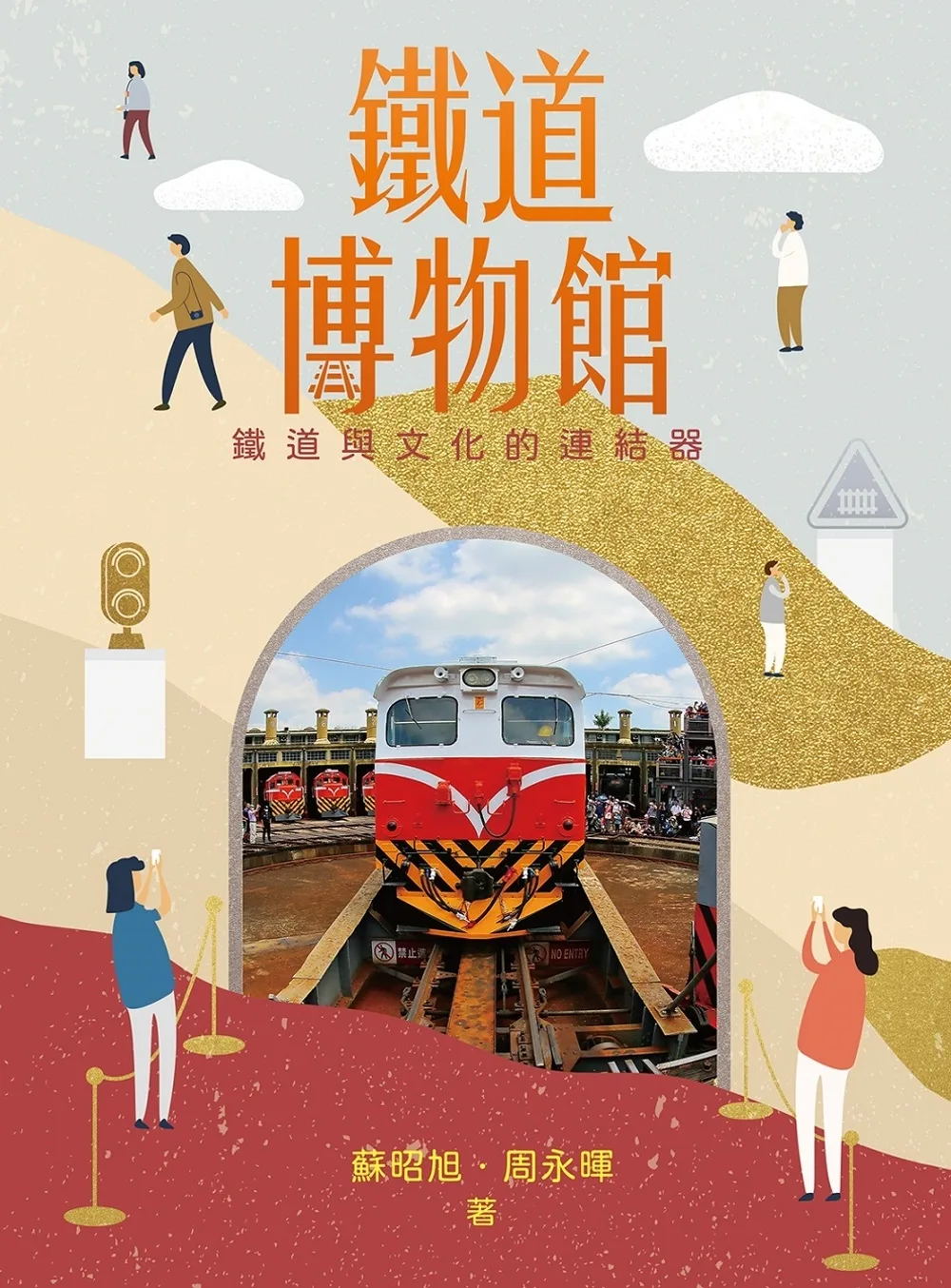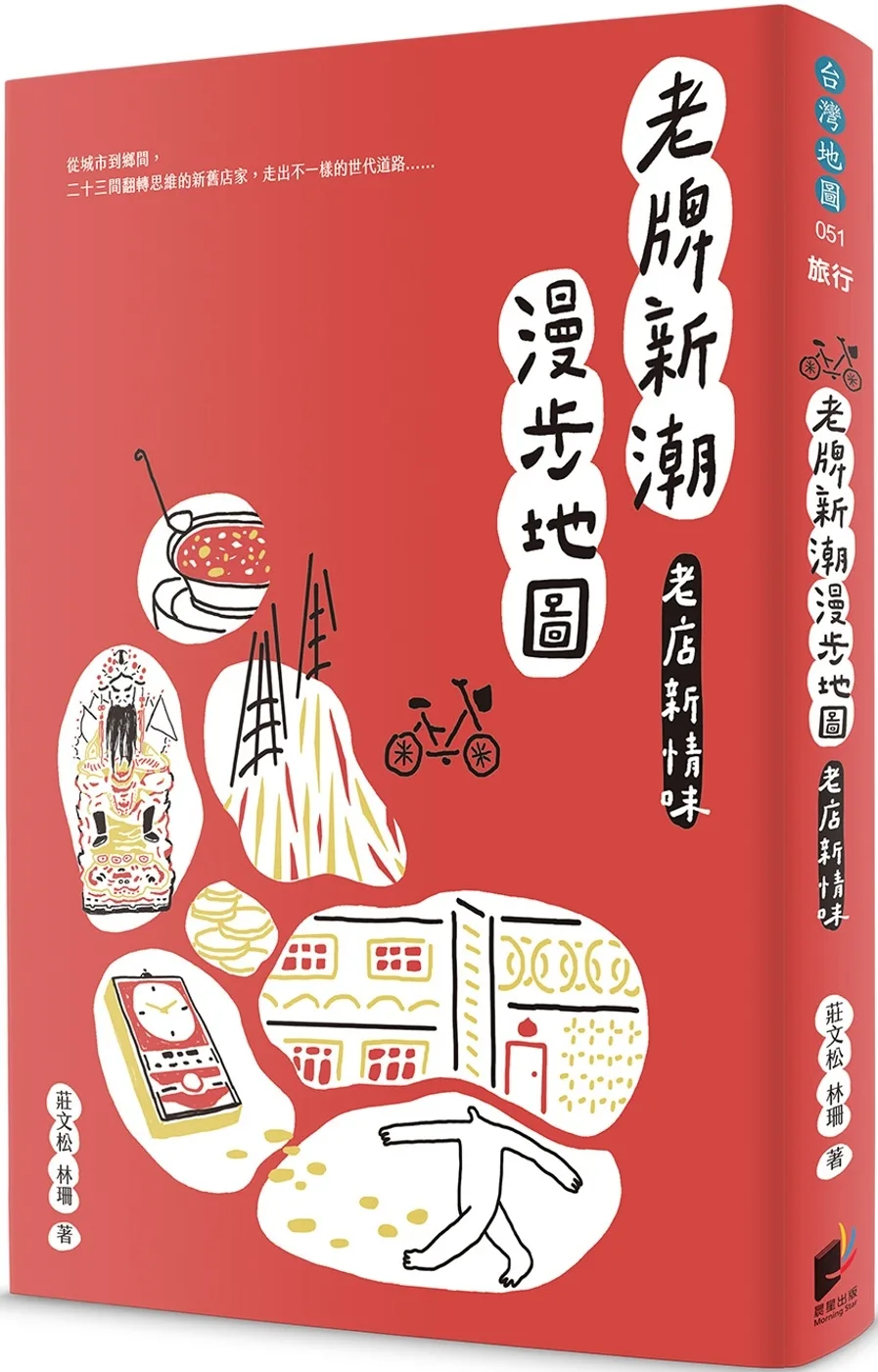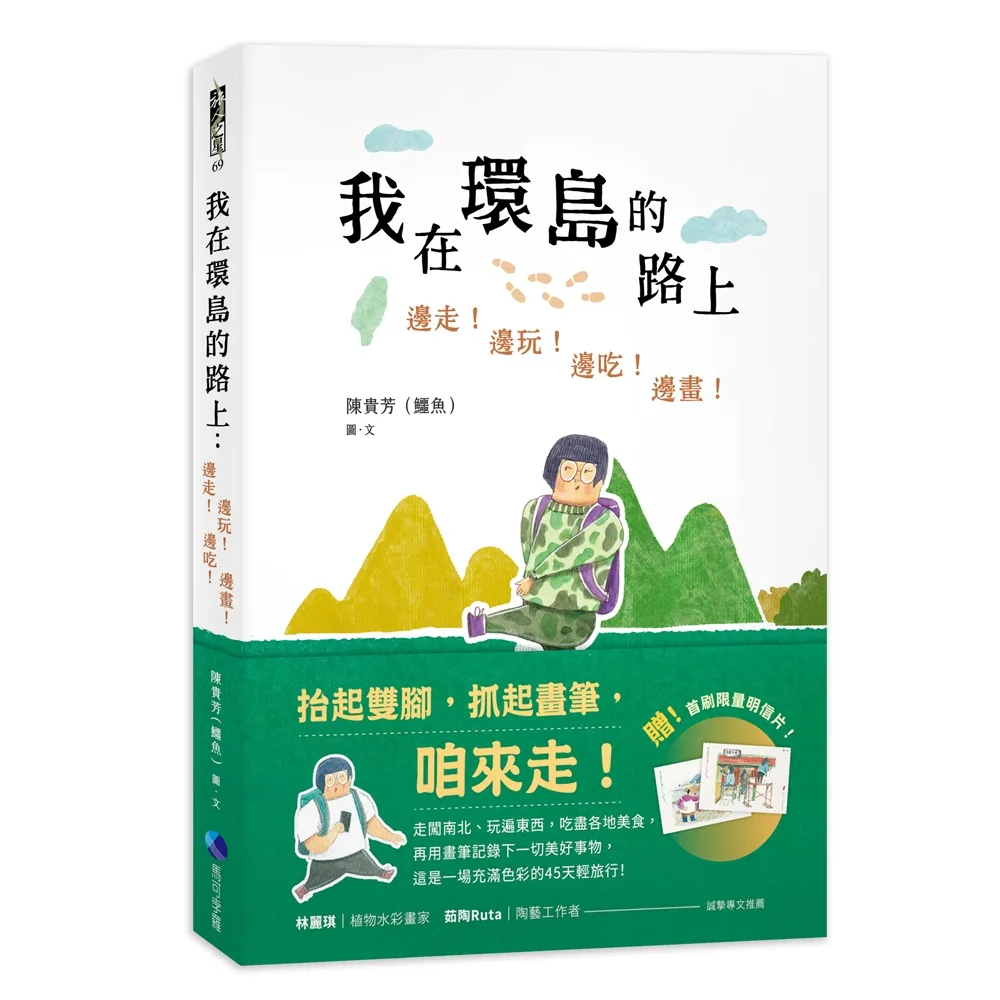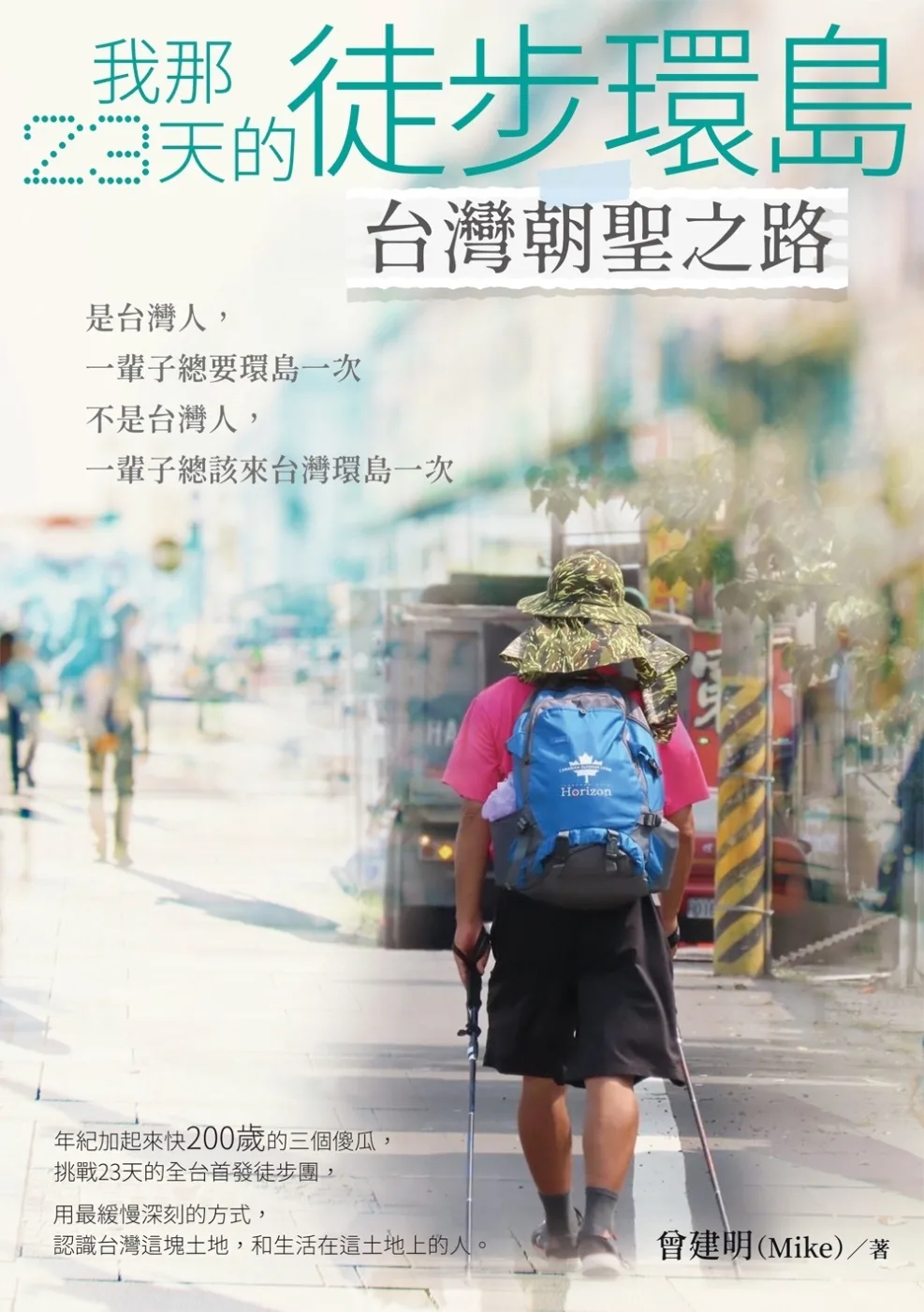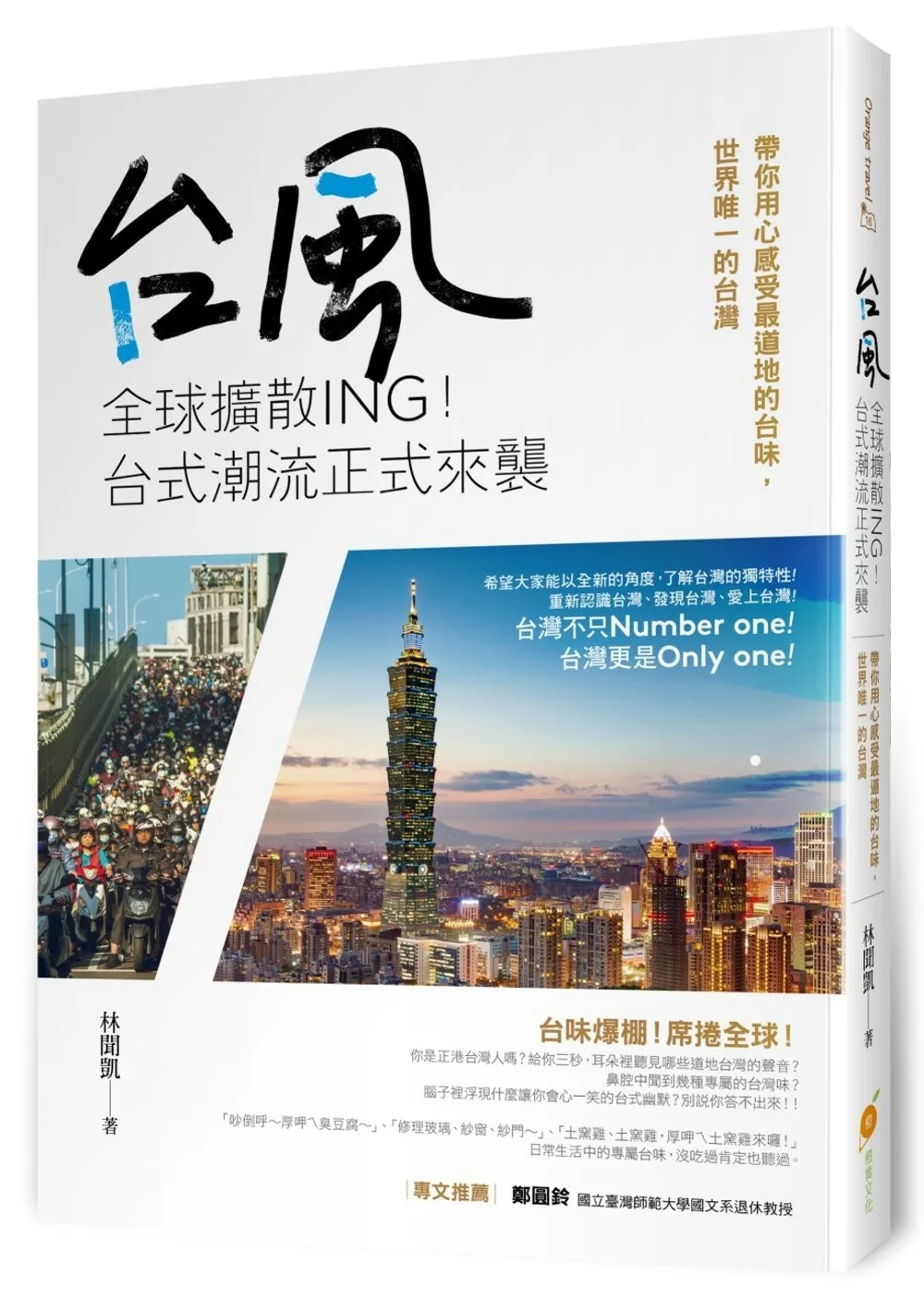推薦序
縫補平行時空的旅行指南 吳易澄(精神科醫師、作家)
我是在美麗島事件的前一年出生的。
有好一段時間的成長記憶與如今回首探望的台灣歷史軌跡,彷彿沒有交會的雙軌。
高中畢業以前,其實很少感受過民主運動的風起雲湧,可能是因為年紀還小,也可能是因社會訊息被某種機制給篩選、扭曲,同時,也許對大多數人來說,還存在著一種不看、不聽、不想的氛圍,以維護著安身立命的卑微需求。
一歲半時,父親出國進修,母親教我跟雙生弟弟在錄音機前錄下:「爸爸會寒否?」據說想家的父親在遙遠的不列顛,放著錄音帶兀自啜泣。然而當時還有一對雙生姊妹的父親也是因故「遠行」,但其實是身陷囹圄;而某日兇手在層層國安人員監控下仍闖進民宅殺害了她們與祖母。
令人痛徹心扉的林家血案,至今尚未破案。直到我讀大學,母親才說她當年因為這個事件,趕緊教會幼小的我們如何開門,而我也才更感受到原來當時每個人都曾面對著恐怖的陰影,並且各自用他們的方式,確保自己生存的機會。
讀小學的時候,有件事至今印象深刻。原因是班上有同學覺得老師偏心給了某個同學較高的成績,於是率隊抗議。小小年紀學起了社會新聞裡的街頭運動,只是幼小的心智,可曾知道所謂抗議是要賣命的?1989年鄭南榕先生為了捍衛言論自由,自焚而死。當時的新聞報紙仍然刊出他曾「看過精神科」,以精神病的污名來詆毀那些企圖衝撞體制者。
緊接著,中國64事件發生了。那年我小學三年級,早熟的小學生竟然也擺起了簽名桌,在教室外的走廊播放「歷史的傷口」,要聲援對岸的大哥哥大姊姊們。隔年也有一群大學生在中正紀念堂前面靜坐,當時我竟然有種錯置的記憶,以為他們是為了聲援天安門事件。反共教育貫穿著我們的成長歷程,讓我們誤以為世界上只有一種敵人。一直到高中參加合唱團,當時的合唱指定曲,竟然還是「國破山河在,豈可徬徨」、「願我大中華,萬世康強」的「山河戀」。好在至少我們也一面唱著「毋通嫌台灣」,知道某些價值正在改變著。
大概像我們這一代,或許稱作美麗島後的世代,在懵懂中才快要摸透些什麼時,又很快地遇上了解嚴,以及看似美好的經濟起飛(或許也是曇花一現)。更讓人以為理所當然的是思想與言論的自由。在那個黑手變頭家的年代,大家都還沒能意識到未來我們的生活將是被更難以抵禦的資本主義與財團給宰制。然後,威權又很快地復辟了。對岸的政治領袖來訪,為既得利益者簽約,人民被迫噤聲。都更、毀田、迫遷事件接踵而來,一切都打著進步的旗幟。而這些高喊進步的人,也都正是粉飾歷史的人。
當一切都變化迅速,或許偶爾感嘆,大多數人依舊和這種平行時空中那些安安靜靜地、不願多說些什麼,或者也不敢多多做些什麼的人們一樣,任憑自己的權利持續地被剝奪,或者更難洞見自己的尊嚴被某種更細緻的治理方式給收編、吞噬。
這種集體的「無感」,有一部分來自由上而下的歷史詮釋被扭曲了,有一部分來自於由下而上的自我保護心態遮蔽了我們深掘、翻修記憶的動機。傷得太深,只好選擇遺忘。當然還有一部分是,我們的物質世界變化得太快,讓我們無從感到身邊的一磚一瓦,值得我們駐足凝視,或挺身捍衛。
還記得幾年前在捷克的蜜月旅行,玩具店裡陳設著恐怖面具,其中有個是希特勒的頭像。雖然我對這種複製、誇大與販賣恐怖的方式不甚認同,但我想到台灣。即使經歷過一段「去蔣」的辯論,卻仍存在著蔣介石銅像林立的慈湖公園,並且處處推銷著「Q版蔣公」的「文創商品」。
還記得布拉格的瓦茨拉夫廣場一隅,為了抗議蘇聯入侵而自焚的楊帕拉(Jan Palach)的紀念碑,設在廣場醒目之處,鮮花燭火不斷。而同樣也歷經納粹摧殘的捷克,也存有悲傷的遺跡。布拉格的猶太教堂裡,每一位遭受納粹屠殺的犧牲者的名字,皆一筆一劃密密麻麻地刻寫在牆上。空城一般的特雷辛(Terezin),整個城鎮本身就是一個紀念碑。
貫穿蜜月的浪漫的,猶有置身於歷史傷痛的震撼。當然,歐洲社會究竟是不是進步的,又是另一回事了。只是回頭想想故鄉,總會覺得有種缺了什麼的感覺。每每政治人物丟出「歷史共業」一句話,似乎就抹消了我們應該記起什麼的意念。
然而令人欣慰的是,易蓁對這樣的遺憾,丟出了一種可能性。
大概很少人願意在旅行中,寧願將自己拋擲到一種迫使自己去逼視一段又一段歷史傷痕的境界。特別是在這個講求輕快的時代。人們不大願意,其實也是無法停下腳步思索自己的身世,然而也就任憑掌權者擺佈自己的命運。
電視裡頭的旅行節目,大多以美食為主題,文創商品則作為一種輕輕柔柔的伴奏;然後台灣就變成美食天堂,人們友善熱情而充滿創意。易蓁卻反其道而行,揹起行囊,扛起相機與筆記本,以「吃重鹹」的態度,走訪了台灣各處的民主景點。透過親身的體會造訪來認識歷史,可以說是一種歷史教育身體化(embodiment)的實踐。
聽聞林家血案多年後,我偕妻與一歲多的兒子到宜蘭旅行。走入林家古厝,看見當年的雙生女孩一筆一劃寫下希望爸爸快點回家的心聲,著實讓心痛到無法呼吸。又或者在綠島,你親自體會幽閉的管訓密室,才知道人再如何也不能失去希望。
近日帶來轟動的紀錄片《看見台灣》,以鳥瞰的高度巡視一遍受傷的島嶼。然而批評者認為何以只有該片可以宣稱看見台灣?有時,我們當然要換個角度凝視傷口,但只有表面的驗傷而沒有進行深部的清創,有時難以復原。看見台灣有很多種方式,搭直升機鳥瞰是一種,但一步步踩過前人流血流淚之處,讓時間停留,讓我們的心與故人緊緊相連、共振,也是一種看見。
當年茱莉亞羅勃茲主演了一部自傳小說改編的電影《享受吧!一個人的旅行》,讓這種旅行中體驗孤獨、透過靈修冥想來重新學習愛自己與他人蔚為風尚;那麼《自由背包客》所想要嘗試的,反而是「承受吧!一個人的旅行」,那是另一種層次的體驗,透過與歷史,與昔日為民主人權犧牲者的重逢,召喚著此刻我們得以生存的虧欠與勇氣。
走過納粹迫害的意義治療大師法蘭可(Viktor Frankl)曾作詩,寫道「你們靜默地給了我責任,為你們活下去」,這或許是我們走過歷史現場的目的。
謝謝易蓁寫就這本穿越時空的旅行指南。歷史之書何其多,但是至少這是一本親身體會的踏查。希望這本冊子能夠為我們歷經民主風起而又彷彿停止轉動的這一代,或甚至為往後更困擾於當今種種民主憲政亂象的年輕朋友,注入一點可能,至少,讓我們的生活態度與歷史記憶並存於平行時空。
渴望自由的背包客,準備出發了嗎?
A Travel Guide Stitching Together Two Historical Maps
Yi-Cheng Wu
Psychiatrist, Writer
I was born in the year before the Formosa Magazine Incident.
Before I graduated from high school, I barely perceived the existence of so-called pro-democracy movements on the island. Distorted and covered up by the mainstream media and the air of self-censorship, information seemed hidden in another dimension. In those austere years, the best survival strategy was to settle down and get immersed in one’s little pursuits in business or whatever without trying to listen, see, or think.
I was told that when I was a year and a half old, when my father went to study in England, my mother recorded the voices of my brother and myself asking, “Dad, is it cold there?” Hearing our innocent voices, my dad sobbed at the home of his homestay family. That same year, a father in Taiwan was imprisoned for defending opposition leaders in the Formosa Magazine Incident. His mother contacted the Amnesty International Osaka Office, but the next day she and his twin daughters were stabbed to death. After this incident, my mother realized that she had to teach us how to open a locked door for the fear of similar tragedy occurring to her twin boys.
When I was in elementary school in 1989, another news event rocked our society. In order to promote full freedom of speech in Taiwan, Nan-Jung Cheng, a publisher, immolated himself in his own magazine’s office. The mainstream news reports (of course, owned by a pro-government company) alleged that before his crazy behavior, he had visited the psychiatric department of the National Taiwan University Hospital several times. This was a typical case of someone trying to challenge the regime being stigmatized by the government. Under the power structure consisting of the Chinese Nationalist Party (KMT), the government, the military, and the secret intelligence service, there was neither truth nor justice.
And then there were the 1989 Tiananmen Square protests in China, followed by the Wild Lily Campaign in front of the Chiang Kai-Shek Memorial Hall in Taipei in March1990. Ignorant as I was, I thought that these university students were backing their counterparts in Beijing. But, no, they were demanding direct election of Taiwan’s president and a new general election for the National Assembly. The current president, Ma Ying-Jeou, at that time firmly rejected the students’ demands. As a model student in an anti-Communist education system, I was ignorant enough to have believed that Taiwan had only one enemy.
People like me belong to a generation impacted by martial law and the “open” years after it was lifted. The economic take-off confused people in Taiwan with the false belief that it was now “happy ever after”. The incomplete work of transitional justice did not prevent us from being further dominated by pro-capitalist governments and the corporations allied to them. Authoritarianism swiftly returned. People either remained silent during the urban planning, land grabbing, and forced migration drives. Coincidentally, the very people who hoist the flag of development today were the exploiters during the years of autarchy, but are now revisionists who have been attempting to distort history.
When things change too fast, either materially or ideologically, people tend to be quiet, not willing to say or do anything more than just surviving. As a result, we end up living inside a shell with a self-defense mechanism. We are too hurt to remember. Therefore, we choose to forget. We take it for granted to walk on every road that we have taken to arrive at our destiny, every stone that we have used to pave the road, and every grain of sand that was washed in the stream of history and made the pebbles glow.
I still remember a few years ago on my honeymoon in the Czech Republic seeing horror masks of Adolf Hitler being sold in toy shops. It was unnerving even though I knew it was a way to ridicule and exaggerate the unwanted past. I got more anxious when I thought of the cartoonish statues of the dictator Chiang Kai-Shek being sold as a nostalgic and historically-insensitive “cultural and creative industry” product back home in Taiwan. When I walked past the Jan Palach memorial, the Jewish church in Prague, and the deserted town of Terezin, I asked myself, “What do we lack back in Taiwan?”
After careful planning and investigation, the young author I-Chen Wu and her publisher have come up with a guidebook that responds very well to my concerns. Few travel guides about Taiwan would take you to those unpopular spots, not because they are remote, but because they engage you with covered truth and contested histories. I-Chen’s guidebook embodies an emerging practice: historical education. This travel guide (which is also available in English) is appropriate for those who are complete “dummies” about Taiwan, those who believe Taiwan is a model student of democracy, and those who think that Taiwan’s democracy is nothing more than punches in the parliament.
Recently, a type of traveling was popularized by Julia Roberts in Eat Pray Love, in which a traveler learns how to engage with others through solitude and spiritual retreat. I-Chen and Harry’s On the Road to Freedom offers another kind of travel experience – not a very entertaining one. But it promises to be mind-expanding and soul-clearing. It offers maps printed with our collective memory, which will only become visible once you decide to hit the road.

